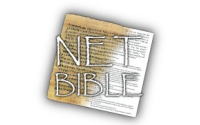April 10 – Joshua 15 thru 17 from the Old Testament
Joshua 15 thru 17
15:1 The land allotted to the tribe of Judah by its clans reached to the border of Edom, to the Wilderness of Zin in the Negev far to the south. 15:2 Their southern border started at the southern tip of the Salt Sea, 15:3 extended south of the Scorpion Ascent, crossed to Zin, went up from the south to Kadesh Barnea, crossed to Hezron, went up to Addar, and turned toward Karka. 15:4 It then crossed to Azmon, extended to the Stream of Egypt, and ended at the sea. This was their southern border.
15:5 The eastern border was the SaltSea to the mouth of the Jordan River.
The northern border started north of the Salt Sea at the mouth of the Jordan, 15:6 went up to Beth Hoglah, crossed north of Beth Arabah, and went up to the Stone of Bohan son of Reuben. 15:7 It then went up to Debir from the Valley of Achor, turning northward to Gilgal (which is opposite the Pass of Adummim south of the valley), crossed to the waters of En Shemesh and extended to En Rogel. 15:8 It then went up the Valley of Ben Hinnom to the slope of the Jebusites on the south (that is, Jerusalem), going up to the top of the hill opposite the Valley of Ben Hinnom to the west, which is at the end of the Valley of the Rephaites to the north. 15:9 It then went from the top of the hill to the spring of the waters of Nephtoah, extended to the cities of Mount Ephron, and went to Baalah (that is, Kiriath Jearim). 15:10 It then turned from Baalah westward to Mount Seir, crossed to the slope of Mount Jearim on the north (that is Kesalon), descended to Beth Shemesh, and crossed to Timnah. 15:11 It then extended to the slope of Ekron to the north, went toward Shikkeron, crossed to Mount Baalah, extended to Jabneel, and ended at the sea.
15:12 The western border was the Mediterranean Sea. These were the borders of the tribe of Judah and its clans.
15:13 Caleb son of Jephunneh was assigned Kiriath Arba (that is Hebron) within the tribe of Judah, according to the Lord’s instructions to Joshua. (Arba was the father of Anak.) 15:14 Caleb drove out from there three Anakites – Sheshai, Ahiman, and Talmai, descendants of Anak. 15:15 From there he attacked the people of Debir. (Debir used to be called Kiriath Sepher.) 15:16 Caleb said, “To the man who attacks and captures Kiriath Sepher I will give my daughter Acsah as a wife.” 15:17 When Othniel son of Kenaz, Caleb’s brother, captured it, Caleb gave Acsah his daughter to him as a wife.
15:18 One time Acsah came and charmed her father so that she could ask him for some land. When she got down from her donkey, Caleb said to her, “What would you like?” 15:19 She answered, “Please give me a special present. Since you have given me land in the Negev, now give me springs of water. So he gave her both upper and lower springs.
15:20 This is the land assigned to the tribe of Judah by its clans: 15:21 These cities were located at the southern extremity of Judah’s tribal land near the border of Edom: Kabzeel, Eder, Jagur, 15:22 Kinah, Dimonah, Adadah, 15:23 Kedesh, Hazor, Ithnan, 15:24 Ziph, Telem, Bealoth, 15:25 Hazor Hadattah, Kerioth Hezron (that is, Hazor), 15:26 Amam, Shema, Moladah, 15:27 Hazar Gaddah, Heshbon, Beth Pelet, 15:28 Hazar Shual, Beer Sheba, Biziothiah, 15:29 Baalah, Iim, Ezem, 15:30 Eltolad, Kesil, Hormah, 15:31 Ziklag, Madmannah, Sansannah, 15:32 Lebaoth, Shilhim, Ain, and Rimmon – a total of twenty-nine cities and their towns.
15:33 These cities were in the lowlands: Eshtaol, Zorah, Ashnah, 15:34 Zanoah, En Gannim, Tappuah, Enam, 15:35 Jarmuth, Adullam, Socoh, Azekah, 15:36 Shaaraim, Adithaim, and Gederah (or Gederothaim) – a total of fourteen cities and their towns.
15:37 Zenan, Hadashah, Migdal Gad, 15:38 Dilean, Mizpah, Joktheel, 15:39 Lachish, Bozkath, Eglon, 15:40 Cabbon, Lahmas, Kitlish, 15:41 Gederoth, Beth Dagon, Naamah, and Makkedah – a total of sixteen cities and their towns.
15:42 Libnah, Ether, Ashan, 15:43 Iphtah, Ashnah, Nezib, 15:44 Keilah, Aczib, and Mareshah – a total of nine cities and their towns.
15:45 Ekron and its surrounding towns and settlements; 15:46 from Ekron westward, all those in the vicinity of Ashdod and their towns; 15:47 Ashdod with its surrounding towns and settlements, and Gaza with its surrounding towns and settlements, as far as the Stream of Egypt and the border at the Mediterranean Sea.
15:48 These cities were in the hill country: Shamir, Jattir, Socoh, 15:49 Dannah, Kiriath Sannah (that is, Debir), 15:50 Anab, Eshtemoh, Anim, 15:51Goshen, Holon, and Giloh – a total of eleven cities and their towns.
15:52 Arab, Dumah, Eshan, 15:53 Janim, Beth Tappuah, Aphekah, 15:54 Humtah, Kiriath Arba (that is, Hebron), and Zior – a total of nine cities and their towns.
15:55 Maon, Carmel, Ziph, Juttah, 15:56 Jezreel, Jokdeam, Zanoah, 15:57 Kain, Gibeah, and Timnah – a total of ten cities and their towns.
15:58 Halhul, Beth Zur, Gedor, 15:59 Maarath, Beth Anoth, and Eltekon – a total of six cities and their towns.
15:60 Kiriath Baal (that is, Kiriath Jearim) and Rabbah – a total of two cities and their towns.
15:61 These cities were in the desert: Beth Arabah, Middin, Secacah, 15:62 Nibshan, the city of Salt, and En Gedi – a total of six cities and their towns.
15:63 The men of Judah were unable to conquer the Jebusites living in Jerusalem. The Jebusites live with the people of Judah in Jerusalem to this very day.
Joseph’s Tribal Lands
16:1 The land allotted to Joseph’s descendants extended from the Jordan at Jericho to the waters of Jericho to the east, through the desert and on up from Jericho into the hill country of Bethel. 16:2 The southern border extended from Bethel to Luz, and crossed to Arkite territory at Ataroth. 16:3 It then descended westward to Japhletite territory, as far as the territory of lower Beth Horon and Gezer, and ended at the sea.
16:4 Joseph’s descendants, Manasseh and Ephraim, were assigned their land. 16:5 The territory of the tribe of Ephraim by its clans included the following: The border of their assigned land to the east was Ataroth Addar as far as upper Beth Horon. 16:6 It then extended on to the sea, with Micmethath on the north. It turned eastward to Taanath Shiloh and crossed it on the east to Janoah. 16:7 It then descended from Janoah to Ataroth and Naarah, touched Jericho, and extended to the Jordan River. 16:8 From Tappuah it went westward to the Valley of Kanah and ended at the sea. This is the land assigned to the tribe of Ephraim by its clans. 16:9 Also included were the cities set apart for the tribe of Ephraim within Manasseh’s territory, along with their towns.
16:10 The Ephraimites did not conquer the Canaanites living in Gezer. The Canaanites live among the Ephraimites to this very day and do hard labor as their servants.
17:1 The tribe of Manasseh, Joseph’s firstborn son, was also allotted land. The descendants of Makir, Manasseh’s firstborn and the father of Gilead, received land, for they were warriors. They were assigned Gilead and Bashan. 17:2 The rest of Manasseh’s descendants were also assigned land by their clans, including the descendants of Abiezer, Helek, Asriel, Shechem, Hepher, and Shemida. These are the male descendants of Manasseh son of Joseph by their clans.
17:3 Now Zelophehad son of Hepher, son of Gilead, son of Makir, son of Manasseh, had no sons, only daughters. These are the names of his daughters: Mahlah, Noah, Hoglah, Milcah, and Tirzah. 17:4 They went before Eleazar the priest, Joshua son of Nun, and the leaders and said, “The Lord told Moses to assign us land among our relatives.” So Joshua assigned them land among their uncles, as the Lord had commanded. 17:5 Manasseh was allotted ten shares of land, in addition to the land of Gilead and Bashan east of the Jordan, 17:6 for the daughters of Manasseh were assigned land among his sons. The land of Gilead belonged to the rest of the descendants of Manasseh.
17:7 The border of Manasseh went from Asher to Micmethath which is near Shechem. It then went south toward those who live in Tappuah. 17:8 (The land of Tappuah belonged to Manasseh, but Tappuah, located on the border of Manasseh, belonged to the tribe of Ephraim.) 17:9 The border then descended southward to the Valley of Kanah. Ephraim was assigned cities there among the cities of Manasseh, but the border of Manasseh was north of the valley and ended at the sea. 17:10 Ephraim’s territory was to the south, and Manasseh’s to the north. The sea was Manasseh’s western border and their territory touched Asher on the north and Issachar on the east. 17:11 Within Issachar’s and Asher’s territory Manasseh was assigned Beth Shean, Ibleam, the residents of Dor, En Dor, the residents of Taanach, the residents of Megiddo, the three of Napheth, and the towns surrounding all these cities. 17:12 But the men of Manasseh were unable to conquer these cities; the Canaanites managed to remain in those areas. 17:13 Whenever the Israelites were strong militarily, they forced the Canaanites to do hard labor, but they never totally conquered them.
17:14 The descendants of Joseph said to Joshua, “Why have you assigned us only one tribal allotment? After all, we have many people, for until now the Lord has enabled us to increase in number.” 17:15 Joshua replied to them, “Since you have so many people, go up into the forest and clear out a place to live in the land of the Perizzites and Rephaites, for the hill country of Ephraim is too small for you.” 17:16 The descendants of Joseph said, “The whole hill country is inadequate for us, and the Canaanites living down in the valley in Beth Shean and its surrounding towns and in the Valley of Jezreel have chariots with iron-rimmed wheels.” 17:17 Joshua said to the family of Joseph – to both Ephraim and Manasseh: “You have many people and great military strength. You will not have just one tribal allotment. 17:18 The whole hill country will be yours; though it is a forest, you can clear it and it will be entirely yours. You can conquer the Canaanites, though they have chariots with iron-rimmed wheels and are strong.”




